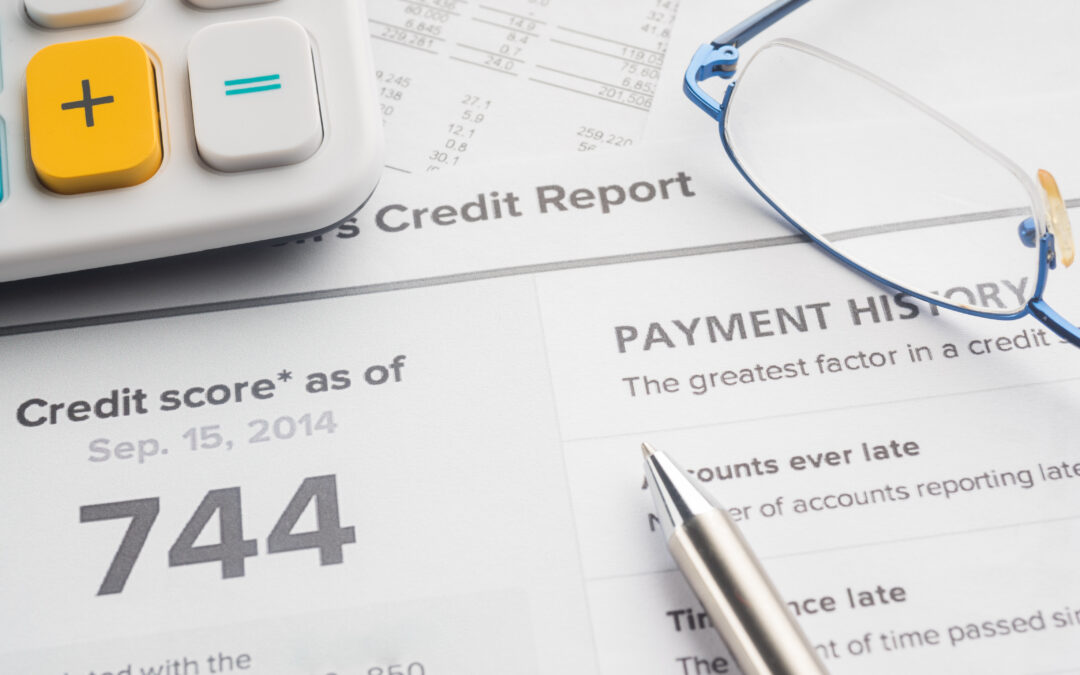When it comes to managing finances, it’s easy to focus on paying bills on time, reducing debt, and maintaining a good credit score. However, one aspect that is often overlooked is the impact of unpaid taxes on creditworthiness.
The relationship between taxes and credit scores can be confusing, and you may ask yourself, “Do unpaid taxes affect credit scores?”
The short answer is yes, but not directly. However, just because the effects are indirect doesn’t mean they can’t lead to severe consequences. Read on to learn more about the complex dynamics between unpaid taxes and credit scores, how they can affect each other, and what steps you can take to minimize potential negative consequences.
How Unpaid Taxes Could Potentially Impact Your Credit Score
Unlike traditional debts such as credit cards or loans, tax debt does not automatically appear on credit reports. Instead, credit reporting agencies primarily look at payment history, credit utilization, length of credit history, types of credit accounts, and recent credit inquiries to determine your credit score. Unpaid taxes do not factor into these calculations because they aren’t classified as traditional debts, but they can still impact your credit score in several ways.
These are the most significant impacts of unpaid taxes on credit scores:
- Tax liens | If you fail to pay your taxes, the government may place a tax lien on your property, including real estate or other valuable assets. This tax lien is a public record that will be reported to credit bureaus and can significantly lower your credit score.
- Collections | When tax debt remains unpaid for an extended period, the IRS or state tax authority may turn to collections to recover the amount owed. Collection agencies can report these unpaid tax debts to credit bureaus, negatively affecting your credit score.
- Reduced creditworthiness | If you have unresolved tax issues, lenders or creditors may view you as a higher credit risk. This perception could lead to higher interest rates, lower credit limits, and even loan denials.
- Difficulty obtaining new lines of credit | Unpaid taxes can hinder your ability to secure new lines of credit. Lenders may hesitate to extend credit to individuals with unresolved tax problems, making obtaining loans, credit cards, or mortgages challenging.
What Is a Tax Lien?
A tax lien is a legal claim that a legal entity, such as the IRS or a state tax authority, places on a taxpayer’s property, assets, or income as collateral for unpaid taxes until the debt is fully satisfied. It serves as a mechanism for the government to secure the tax debt owed by an individual or business. When a taxpayer fails to pay taxes on time, the IRS may issue a tax lien. The lien is a public record that notifies creditors and potential buyers of the taxpayer’s debt.
How Do I Know If I Have a Tax Lien on My Credit?
Regularly monitoring your credit report allows you to spot any potential issues promptly. You can do so by obtaining an annual free credit report from each of the three major credit bureaus, Equifax, Experian, and TransUnion.
If there is a tax lien on your credit, you should take immediate action to resolve your tax debt. Fixing the tax debt will result in the release of the tax lien, alleviating the negative consequences associated with it.
How to Mitigate the Impact of Unpaid Taxes on Your Credit
While unpaid taxes can have serious consequences on your credit score, there are several proactive steps you can take to minimize their impact:
- Address your tax debt promptly | The most effective way to prevent tax-related damage to your credit is to pay off your debt. If you cannot pay the full amount, you still have options. Consider setting up an installment plan with the IRS or your state tax authority. Making timely payments under these arrangements will prevent tax liens and protect your credit score.
- Seek professional guidance | If your tax situation is complex and overwhelming, seek help from a tax professional. A tax expert can guide you through resolving your tax issues and ensure compliance with tax regulations minimizing any potential effects on your credit.
- Negotiate with the IRS | In certain situations, the IRS may accept an Offer in Compromise (OIC), allowing you to settle your tax debt for less than the total amount owed.
Protect Your Credit Score With Help from Renewed Homes
At Renewed Homes, we pride ourselves on offering diverse options that may not be readily available through other avenues. We recognize that each person’s circumstances are unique, and our dedicated team is committed to finding a solution that aligns with your needs. We’ll help you explore viable options and provide a comprehensive understanding of the benefits and disadvantages of each option.
If you’re ready to take action to save your credit, our experienced professionals are eager to assist you. Contact us today and let us know how we can help you secure a brighter financial future!


Recent Comments